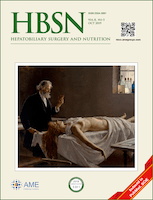
Hepatobiliary Surgery and Nutrition
Scope & Guideline
Innovating hepatobiliary care for better patient outcomes.
Introduction
Aims and Scopes
- Hepatobiliary Surgery:
The journal covers a wide range of surgical techniques and innovations in hepatobiliary surgery, including liver resections, transplantation, and minimally invasive approaches such as robotic surgery. - Liver Transplantation:
It emphasizes the latest advancements in liver transplantation, encompassing donor selection, surgical techniques, post-operative management, and innovative approaches to address complications. - Disease Management and Guidelines:
The journal provides insights into clinical practice guidelines for managing various hepatobiliary diseases, including hepatocellular carcinoma, cholangiocarcinoma, and metabolic liver diseases. - Nutritional Interventions:
A significant focus is placed on the role of nutrition in liver disease management, highlighting the importance of dietary strategies in improving surgical outcomes and patient recovery. - Emerging Technologies:
The journal explores the integration of new technologies such as machine learning, artificial intelligence, and novel imaging techniques in the diagnosis and treatment of liver diseases.
Trending and Emerging
- Robotic and Minimally Invasive Surgery:
There has been a notable increase in studies focusing on robotic-assisted surgeries and minimally invasive techniques, indicating a shift towards advanced surgical methods that promise reduced recovery times and improved outcomes. - Personalized Medicine and Biomarkers:
Emerging research is increasingly centered around personalized medicine, particularly the use of biomarkers for risk stratification and treatment response prediction in hepatobiliary cancers, enhancing targeted therapeutic strategies. - Integrated Multidisciplinary Approaches:
The trend towards multidisciplinary approaches in managing complex liver diseases is gaining traction, with research emphasizing collaborative care models that integrate surgery, oncology, and nutrition. - Microbiome Research and Gut-Liver Axis:
The exploration of the gut-liver axis and its implications for liver disease is emerging as a significant area of interest, with studies investigating the role of the microbiome in liver health and disease progression. - Artificial Intelligence and Machine Learning:
The application of AI and machine learning in predicting surgical outcomes, managing liver diseases, and enhancing diagnostic capabilities is increasingly prevalent, reflecting a broader trend towards data-driven healthcare.
Declining or Waning
- Traditional Surgical Techniques:
The focus on traditional open surgical techniques has decreased as newer minimally invasive and robotic techniques gain prominence, reflecting a broader trend towards less invasive approaches in surgical practice. - Generalized Disease Guidelines:
There appears to be a decline in papers discussing broad disease management guidelines, with a shift towards more specific, tailored approaches that consider individual patient factors and innovations in treatment. - Acute Liver Failure Management:
The frequency of papers specifically addressing acute liver failure has waned, possibly due to a growing emphasis on chronic liver disease management and preemptive strategies for liver transplantation.
Similar Journals
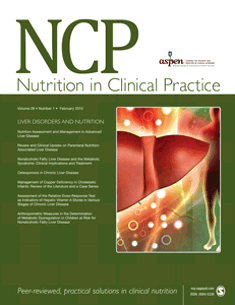
NUTRITION IN CLINICAL PRACTICE
Innovating Dietary Solutions for Modern MedicineNUTRITION IN CLINICAL PRACTICE is a distinguished journal published by Wiley, dedicated to advancing the field of nutrition within clinical settings. Established in 1986, this peer-reviewed journal provides a platform for the dissemination of high-quality research that informs clinical practices and enhances patient care. With a current impact factor that reflects its substantial influence, it is categorized in Q2 in both Medicine (miscellaneous) and Nutrition and Dietetics, underscoring its critical role in guiding healthcare professionals. The journal spans a wide range of topics, including nutritional assessment, dietary interventions, and the latest trends in clinical nutrition research, making it indispensable for researchers, clinicians, and students committed to improving nutritional health outcomes. Although it does not offer open access, its content is accessible through institutional subscriptions, ensuring that vital information reaches those who need it in the ever-evolving landscape of medical nutrition.

Gut and Liver
Exploring breakthroughs in gastrointestinal and liver diseases.Gut and Liver is a prestigious peer-reviewed journal dedicated to advancing the fields of Gastroenterology and Hepatology. Published by the EDITORIAL OFFICE GUT & LIVER in South Korea, this Open Access journal has been disseminating valuable research findings since 2007, making critical knowledge accessible to a global audience. With an impressive 2023 impact factor that places it in Q1 rank in both Gastroenterology (#28/167) and Hepatology (#22/82), it is recognized as a leader in the medical domain. The journal covers diverse topics, including innovative therapeutic strategies, clinical practices, and groundbreaking research in liver diseases and gastrointestinal disorders, thereby playing a vital role in improving patient care and outcomes. Researchers, healthcare professionals, and students can benefit from the journal's wealth of information, designed to foster collaboration and spark new ideas within the scientific community. For further engagement with current research, readers can access issues from 2009 to 2024 and stay updated on the latest advancements in the field.

Hepatology International
Pioneering discoveries in the realm of hepatology.Hepatology International is a premier academic journal dedicated to advancing the field of liver research and hepatology. Published by SPRINGER, this journal boasts a prestigious Q1 ranking in Hepatology as of 2023, underscoring its commitment to high-quality research dissemination. The journal’s scope encompasses a wide range of topics related to liver disease, including clinical, translational, and basic science studies. With its impact factor reflecting its relevance and influence in the field, Hepatology International serves as an essential resource for researchers, clinicians, and students aiming to keep abreast of the latest developments and breakthroughs. Though traditionally a subscription-based journal, it offers a vast array of insightful articles that contribute significantly to our understanding of hepatological conditions. The journal continues its trajectory of growth since its inception in 2008, anticipating a convergence of knowledge and innovation through to 2024. Located in the heart of New York City, this journal not only represents a crucial platform for global hepatology research but also fosters a collaborative community of experts dedicated to improving liver health worldwide.
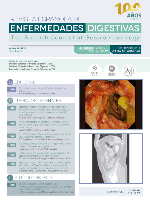
REVISTA ESPANOLA DE ENFERMEDADES DIGESTIVAS
Advancing the frontiers of digestive health.REVISTA ESPANOLA DE ENFERMEDADES DIGESTIVAS, a pivotal Open Access journal published by ARAN EDICIONES, S A, has been at the forefront of advancing the field of gastroenterology since its inception in 1990. With a robust commitment to disseminating high-quality research, the journal provides a platform for researchers, clinicians, and students to share innovative findings and insights concerning digestive diseases. The journal is characterized by its Q3 ranking in both Gastroenterology and Miscellaneous Medicine categories, indicative of its significant contributions to these fields, and is positioned within the 36th percentile of Scopus rankings for medicine related to gastroenterology. Based in Spain, REVISTA ESPANOLA DE ENFERMEDADES DIGESTIVAS has embraced the Open Access model since 2004, ensuring that its articles are readily available to a global audience without financial barriers. The journal not only supports academic discourse but also plays a crucial role in improving clinical practices and health outcomes related to digestive health.
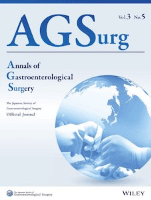
Annals of Gastroenterological Surgery
Empowering Surgical Excellence with Cutting-Edge ResearchAnnals of Gastroenterological Surgery is a premier open-access journal published by WILEY-V C H VERLAG GMBH, dedicated to advancing the field of gastrointestinal surgery through innovative research, comprehensive reviews, and clinical studies. Since its inception in 2017, the journal has quickly established itself as a leading platform, achieving a commendable Q1 ranking in both Gastroenterology and Surgery, with significant impact reflected in its Scopus Ranks, positioning it within the 87th and 69th percentiles, respectively. With its focus on high-quality, accessible research, the Annals of Gastroenterological Surgery invites researchers, professionals, and students from around the globe to contribute and share their findings, ensuring that important advancements in surgical techniques and patient care are broadly disseminated. The journal's open-access model enhances its reach and impact, enabling a wider audience to benefit from cutting-edge developments in the field. As the journal converges towards its 2024 volume, it continues to uphold the highest standards in publication, making it an indispensable resource for anyone involved in the disciplines of gastroenterology and surgical practice.
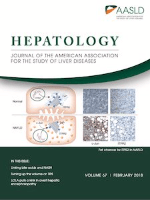
HEPATOLOGY
Pioneering innovative solutions for liver health challenges.HEPATOLOGY is a premier scholarly journal dedicated to advancing the field of liver research and clinical practice. Published by Lippincott Williams & Wilkins, this journal boasts an impressive impact factor and holds a prestigious position as one of the top-ranked publications in both Hepatology (Q1) and Medicine (miscellaneous, Q1) categories as of 2023. HEPATOLOGY, with its commitment to disseminating high-quality research since its inception in 1981, serves as an essential platform for researchers, clinicians, and students focusing on liver diseases, including hepatitis, cirrhosis, and liver cancer. The journal's editorial board comprises leading experts who guide the publication towards its objective of fostering innovation and collaboration in this critical area of health. Although it does not offer an open access model, HEPATOLOGY ensures that its comprehensive analyses, reviews, and groundbreaking studies are accessible to the global medical community. Join the discourse in hepatology and be a part of a transformative journey through this indispensable resource.

HPB
Championing excellence in multidisciplinary liver studies.HPB is a premier journal dedicated to advancing the fields of Gastroenterology and Hepatology, published by Elsevier Science Ltd. With an impressive impact factor reflective of its high-quality research output, HPB has earned its place as a Q1 journal in Gastroenterology and Q2 in Hepatology as of 2023. The journal, available in both print and electronic formats (ISSN: 1365-182X; E-ISSN: 1477-2574), serves as a vital platform for multidisciplinary research, encompassing clinical and experimental studies, aimed at improving patient care and outcomes related to liver and biliary diseases. Since its inception in 2000, HPB has published influential articles that have shaped practice and policy in the field. Located in the United Kingdom, at 125 London Wall, London EC2Y 5AS, the journal is poised to continue its mission of fostering innovation and collaboration among researchers, healthcare professionals, and academicians worldwide.
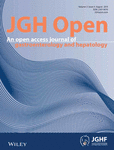
JGH Open
Transforming Discovery into Practice in GastroenterologyJGH Open is a prominent open-access journal dedicated to advancing knowledge in the fields of Gastroenterology and Hepatology, published by WILEY. Since its inception in 2017, the journal has served as a crucial platform for researchers, professionals, and students to disseminate innovative research findings and clinical insights. With an impact factor and Scopus rankings reflecting its steady growth—ranking in the 3rd quartile for both Gastroenterology (Q3) and Hepatology (Q3)—JGH Open is positioned within the competitive landscape of medicine. Its commitment to open access enhances the visibility and accessibility of high-quality research, ensuring that significant advancements in understanding diseases of the gastrointestinal tract and liver reach a broad audience. With a focus on collaboration and dissemination of knowledge, JGH Open aims to contribute to the global discourse and improve outcomes in gastrointestinal health.
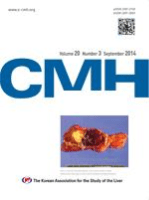
Clinical and Molecular Hepatology
Transforming the landscape of hepatology with cutting-edge studies.Clinical and Molecular Hepatology, published by the Korean Association for the Study of Liver, stands at the forefront of hepatology, offering a significant platform for research and innovation in liver diseases. Established in 1995 as an open access journal, it aims to disseminate high-quality research that spans the fields of hepatology, molecular biology, and medicine. With an impressive impact factor ranking it in the Q1 category for 2023 in both Hepatology and Molecular Biology, the journal facilitates a rich exchange of knowledge among professionals, researchers, and students globally. With its dedicated coverage from 2012 to 2024 and exceptional Scopus rankings placing it within the top 10% of journals in its field, Clinical and Molecular Hepatology is an indispensable resource for advancing the understanding and treatment of liver conditions. Located in Seoul, South Korea, the journal emphasizes rigorous peer review and is committed to enhancing clinical practice and molecular research, making it an ideal venue for groundbreaking studies in liver health.
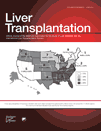
LIVER TRANSPLANTATION
Elevating Standards in Liver Transplantation Research.LIVER TRANSPLANTATION, published by Lippincott Williams & Wilkins, stands at the forefront of hepatology and transplantation research, with a prestigious Q1 rating across the categories of Hepatology, Surgery, and Transplantation as of 2023. Since its inception in 2000, this journal has been dedicated to disseminating high-quality, cutting-edge research that advances the understanding and practice of liver transplantation. With an impressive ranking of 23rd out of 551 in Surgery and 9th out of 54 in Transplantation, it occupies an esteemed position in the academic landscape, attracting contributions from leading experts in the field. The journal's rigorous peer-review process ensures the publication of impactful studies, innovative clinical practices, and vital insights into patient management. By fostering a collaborative environment for researchers, clinicians, and students alike, LIVER TRANSPLANTATION serves as an essential resource for those engaged in the complexities of liver transplantation and related fields. Join the community committed to advancing liver health and transplantation science.